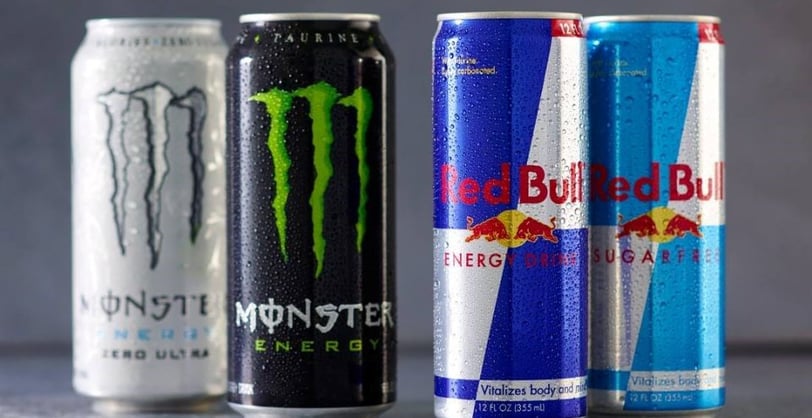Taurine in Red Bull and Monster: Smart Boost or Marketing Hype?
Wondering what taurine in Red Bull and Monster really does? Discover the science behind taurine, its benefits, and whether it’s a smart energy boost or just clever marketing. A must-read for U.S. energy drink fans looking to stay informed and energized.
5/24/20252 min read


Energy drinks like Red Bull and Monster are everywhere—on college campuses, in gyms, at late-night work sessions. And one ingredient they almost always contain? Taurine. But what is taurine really doing in your drink? Is it giving you an edge, or just riding the hype wave?
Let’s unpack the science, the marketing, and what U.S. consumers actually need to know.
🧬 First, What Is Taurine?
Taurine is an amino acid that your body naturally produces. It's found in your brain, heart, eyes, and muscles. You can also get it through diet—mostly from meat, fish, and dairy. Despite the rumors (no, it's not extracted from bull urine!), taurine is completely synthetic in energy drinks like Red Bull and Monster.
So if it’s already in your body, why is it added to your drink?
⚡ Why Do Energy Drinks Add Taurine?
Taurine is thought to support:
Mental focus and alertness
Heart and muscle function
Hydration and electrolyte balance
Reduction in muscle fatigue
When paired with caffeine—another star ingredient in these drinks—taurine may help improve physical and cognitive performance. That’s one reason athletes and gamers love these drinks.
📌 SEO Tip: If you're searching "Does taurine give you energy?"—the answer is indirectly. It works best as a supporting ingredient, not a solo energy booster.
🥤 Red Bull vs. Monster: Taurine Breakdown
Here’s how taurine stacks up in popular U.S. energy drinks:
Red Bull (8.4 oz can): ~1,000 mg of taurine
Monster Energy (16 oz can): ~2,000 mg of taurine
That’s well within safe levels. Most studies suggest taurine is safe up to 3,000 mg per day for healthy adults. Both drinks also pack a caffeine punch, with Monster offering more than double Red Bull’s amount.
👉 Important for U.S. consumers: Watch your total caffeine intake—especially if you’re also drinking coffee or taking pre-workout.
💡 Smart Boost or Just Hype?
Here’s what science says:
Taurine may improve reaction time, focus, and endurance when combined with caffeine.
On its own, taurine’s effects are subtle—not a miracle fix.
Marketing often oversells taurine’s power, but the ingredient itself is legit.
Bottom line: It’s not just hype—but it’s not magic either. Taurine works best when you're already hydrated, rested, and using energy drinks in moderation.
✅ Is It Safe?
For most healthy adults in the U.S., yes. Taurine is considered safe by the FDA and has been studied for decades. The key is moderation—especially since these drinks often contain high levels of caffeine and sugar.
If you're under 18, pregnant, or sensitive to stimulants, it’s smart to skip these drinks or talk to your doctor first.
💬 Final Thoughts: Should You Care About Taurine?
If you’re reaching for a Red Bull before a workout or downing a Monster during an all-nighter, taurine is likely helping—just not in the way flashy ads promise.
So the next time you grab an energy drink, check the label, stay informed, and know that taurine is more helper than hero.
Have you felt a difference with taurine-based energy drinks? Drop your thoughts in the comments—we'd love to hear your experience!
